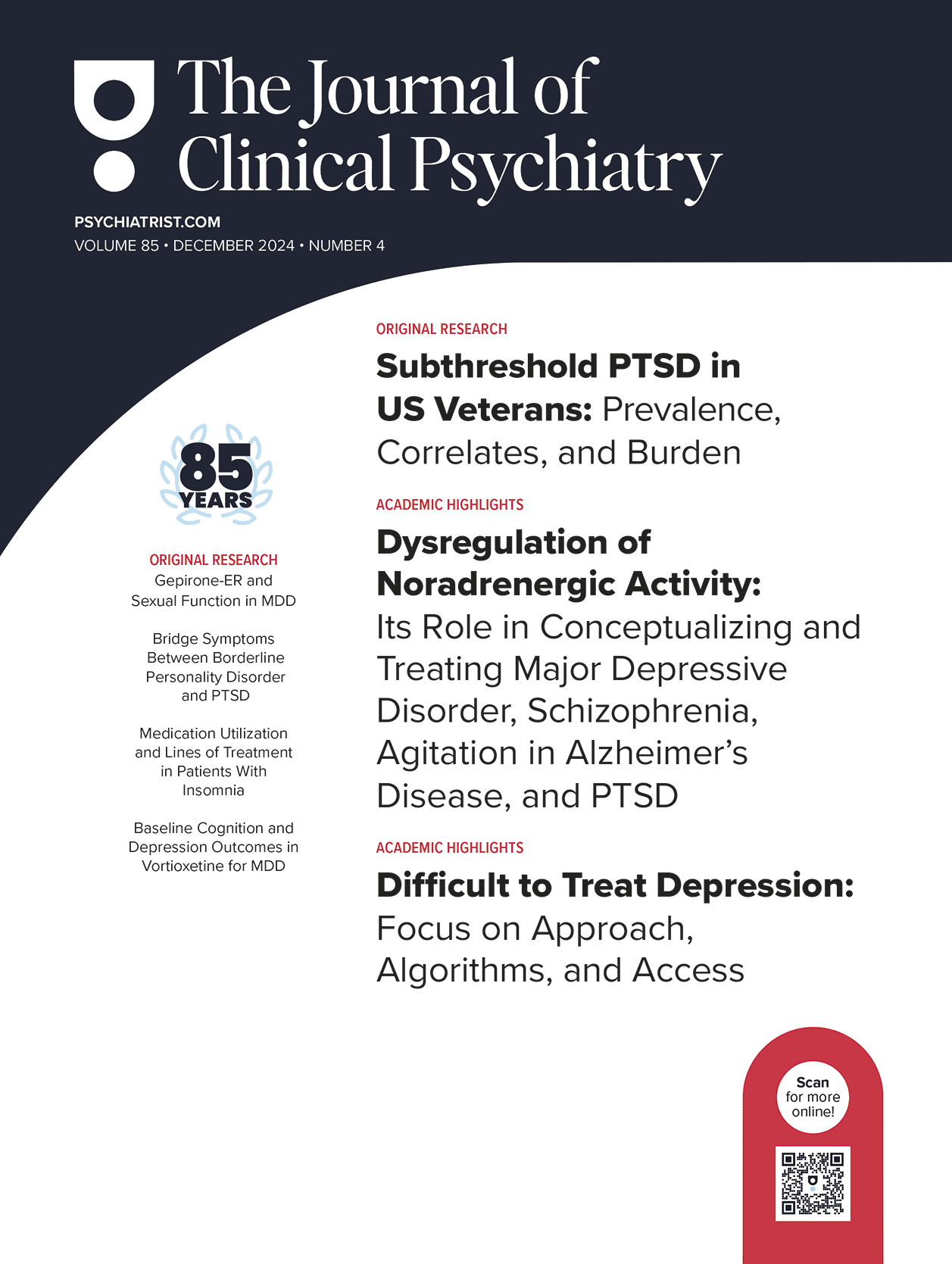Introduction: Identifying clinical and genetic risk factors associated with antidepressant-induced mania (AIM) may improve individualized treatment strategies for bipolar depression.
Method: From 2009 to 2012, bipolar depressed patients, confirmed by DSM-IV-TR-structured interview, were screened for AIM. An AIM+ case was defined as a manic/hypomanic episode within 60 days of starting or changing dose of antidepressant, while an AIM- control was defined as an adequate (≥ 60 days) exposure to an antidepressant with no associated manic/hypomanic episode. 591 subjects (205 AIM+ and 386 AIM-) exposed to an antidepressant and a subset of 545 subjects (191 AIM+ and 354 AIM-) treated with a selective serotonin reuptake inhibitor (SSRI) or serotonin-norepinephrine reuptake inhibitor (SNRI) were used to evaluate the association of AIM with phenotypic clinical risk factors previously published. 295 white subjects (113 AIM+ cases, 182 AIM-controls) were genotyped for 3 SLC6A4 variants: the 5-HTTLPR, single nucleotide polymorphism (SNP) rs25531, and the intron 2 variable number of tandem repeats (VNTR). Tests of association with AIM were performed for each polymorphism and the haplotype.
Results: The only clinical risk factors associated with AIM in the overall and the SSRI + SNRI analysis was bipolar I subtype. The S allele of 5-HTTLPR was not significantly associated with AIM; however, a meta-analysis combining this sample with 5 prior studies provided marginal evidence of association (P = .059). The L-A-10 haplotype was associated with a reduced risk of AIM (P = .012).
Discussion: Narrowly defined, AIM appears to be at greatest risk for bipolar I patients. Our haplotype analysis of SLC6A4 suggests that future pharmacogenetic studies should not only focus on the SLC6A4 promotor variation but also investigate the role of other variants in the gene.
Continue Reading...
Did you know members enjoy unlimited free PDF downloads as part of their subscription? Subscribe today for instant access to this article and our entire library in your preferred format. Alternatively, you can purchase the PDF of this article individually.
Please sign in or purchase this PDF for $40.00.
Save
Cite
Already a member? Login


